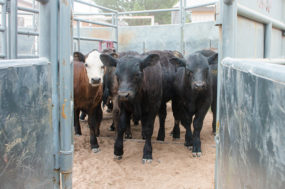Once again, 2021 was a busy year on the agricultural law front. Many of the issues we discussed last year are again front and center this year.
Beef Checkoff litigation
Litigation continues with regard to the constitutionality of the beef checkoff program. Earlier this year, the U.S. Court of Appeals for the 9th Circuit affirmed a decision from the District of Montana upholding the legality of the Montana Beef Checkoff. Specifically, the court found that because the Montana Beef Council entered into a memorandum of understanding with the USDA, which requires government pre-approval of content put out by the Montana Beef Council, this constituted government speech and was protected from First Amendment challenge.
In light of this ruling, R-CALF USA filed a second lawsuit, this time suing the USDA claiming that it improperly entered into the memorandum of understanding with 15 qualified state beef councils. In September, the U.S. District Court for the District of Columbia denied a motion to dismiss, finding that R-CALF did facially have associational standing to bring this challenge, but has sought more briefing regarding the factual basis for R-CALF’s standing.
Definition of waters of the United States
The definition of “waters of the United States” under the Clean Water Act continues to be a moving target. The Obama administration passed a regulation known as the Waters of the U.S. (WOTUS) rule defining the term. Lawsuits flooded in challenging that rule, and it was eventually rescinded by the Trump administration and replaced with the Navigable Waters Protection Rule (NWPR). Again, a number of lawsuits challenged the NWPR definition, which has now been rescinded by federal courts and is no longer being enforced by the EPA or U.S. Army Corps of Engineers. In light of that, it is the pre-Waters of the U.S. approach that will be followed for now. The Biden administration has said it will release its proposed definition in November. At that time, public comment will be taken, and a new final rule is expected in 2022. It is almost certain that, again, numerous lawsuits will follow. All of this legal and political wrangling is likely frustrating to landowners who are trying to determine what they can do on their property.
Potential changes to estate and capital gains taxes
There has been much discussion this year regarding potential changes to estate and capital gains taxes. Importantly, to date, there have been no such bills passed and no changes have been made. However, it is important for landowners and cattle producers to be aware changes could be on the horizon and be prepared to act accordingly.
With regard to the estate tax, one of the most common proposed changes would be to reduce the lifetime exemption. Currently, the lifetime exemption is $11.7 million per person. That is set to remain in place (adjusted for inflation) through 2025. In 2026, it is set to revert back to $5 million per person, adjusted for inflation. Proposals have recommended decreasing the lifetime exemption, with proposals including $3.5 million and $5 million per person.
Looking at capital gains taxes, one major issue for agriculture involves the potential elimination of the step up in basis that has been proposed in certain bills and discussed by the Biden administration. The step up in basis currently allows the cost basis of an asset like land to be stepped up to the value of the land when it is inherited. This can greatly decrease the amount of capital gains taxes due if the land is sold.
California’s Proposition 12 upheld
Although not directly beef-related, there are important issues regarding livestock production at issue in legal challenges to California’s Proposition 12. Proposition 12, which is to go into effect on Jan. 1, 2022, bans the sale of pork in California unless it was raised in a manner meeting certain requirements related to spacing in barns. This is true for any pork sold in California, regardless of where the pigs were raised. The American Farm Bureau Federation and National Pork Producers challenged the constitutionality of this law as violating the Commerce Clause by allowing California to impose standards on other states. The U.S. Court of Appeals for the 9th Circuit dismissed the case. The plaintiffs have sought review from the U.S. Supreme Court. ![]()
This article is current as of Nov. 1, 2021.
Tiffany Lashmet
- Assistant Professor and Specialist
- Texas A&M University AgriLife Extension
- Email Tiffany Lashmet








